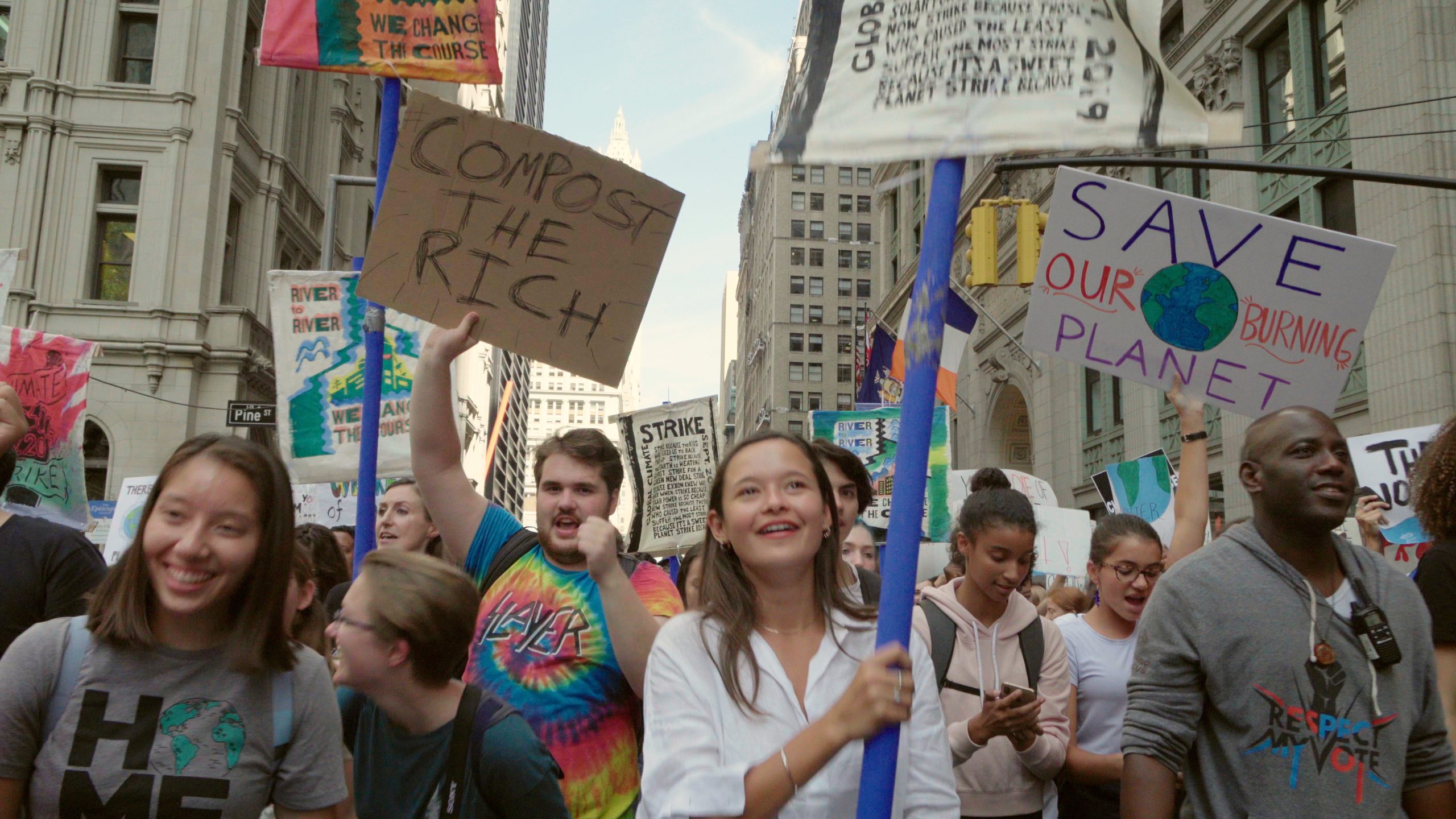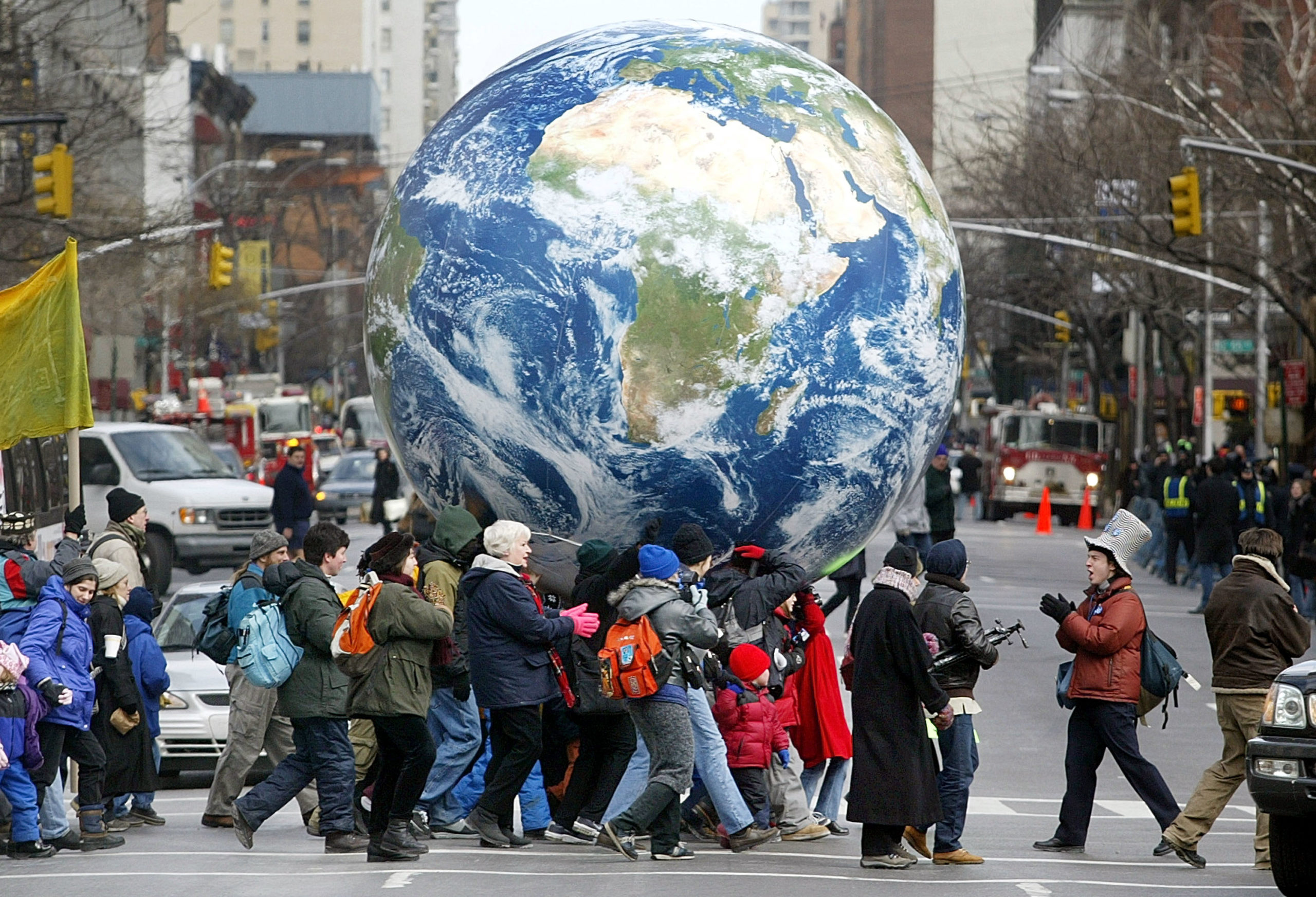As part of the 2021 festival, Cannes dedicated a sidebar to “Cinema for the climate.” This group of mostly non-fiction films tackled various storylines that somehow relate to environmental causes. This, combined with a 20€ charge for each attendee meant to offset our carbon footprint, was but one message drowned out during these COVID-sensitive times. While the irony of worrying about plastic pollution daily when spitting into polymer vessels to ensure that a plague didn’t spread wasn’t lost, we humans are occasionally gifted with the ability to keep several things in mind at once.
On its surface, Flore Vasseur’s Bigger Than Us is the kind of crowd-pleasing activist documentary that litters festivals all over the world. The film centers on Melati Wusen, a charismatic Dutch-Indonesian 18 year-old who spent her early adolescence successfully advocating for the abandonment of plastic bags. We see as she boards flights to travel to other young and energetic crusaders, directly addressing her blindspots and bringing attention to their stories.
We meet Memory Banda from Malawi, whose fight against child marriage in her country is detailed in devastating ways. There’s Mohama Al Jounde, a Syrian refugee raised in the Lebanese camps who has taken over the task of educating the young. There’s Winnie Tushaba, a Ugandan woman intent on providing food security to her community. Xiutezcatl Martinez is a rapper and Indigenous activist, rhyming about a land being spoiled. Rene Silva in Brazil started a newspaper at the age of 11, and in his favela continues to spread truths that the government often finds uncomfortable. Finally, there’s Mary Finn, a Brit who has relocated to the shores of the Mediterranean and Adriatic to provide front-line support to refugees trying to flee dire circumstances.
Each story is told through chapters, using Wusen’s personal journey to meet the other participants as a way for us to appreciate the many responses to these issues. At its best, the film serves as a rallying call to young people by showcasing the leadership potential in their own communities and making overt the notion that small changes can truly have global impact.
As a documentary, things are a bit pat. General questions such as Wusen’s own privilege to be globetrotting, and even the limited effectiveness of her activism given the significant challenges that Indonesia faces on a wide range of issues that do not easily fit on a t-shirt or raised placard, are given short shrift. The intention of the film is clear and, as a kind of noble propaganda, it’s effective at preaching to those open to the message portrayed.
Beyond the superficiality of how many of these deeply provocative issues are dealt with, it’s obvious that the intent here isn’t a deep dive but instead an opportunity to provide “inspiration” for audiences to be drawn into whatever struggles they feel noble. It’s a film well enough constructed that it’s likely to generate exactly the effect required, and thanks to the likes of executive producer Marion Cotillard and its placement within the prestigious festival, its messaging will certainly be amplified. While she’s the center of the entire narrative, one need not look too closely at Wusen other than to see her as a vessel by which these other stories can be told, and certainly for many this will be enough.
Vasseur’s film is finely attuned to current social and justice discourse, and while the more superficial elements are downplayed, there’s still enough in the narratives of the participants to move even the most jaded. While another film perhaps would more thoroughly interrogate some of the issues raised, moving away from a travelogue and perhaps into a more journalistically sophisticated tale, that’s clearly not the intention of this work. Instead, audiences will be treated to a perfectly satisfactory piece of advocacy where young people in particular are targeted to be swayed by its messages of both significant concern and the glimmers of hope.
Bigger Than Us deals with truly big issues, and often does so in clumsy and simplistic ways that could be seen to diminish both the struggles and the nuances of many of these storylines. Yet that’s clearly not a limiting factor when taken into accounts its intention to inspire more than to deeply inform, opening the door for those to do the heavy lifting and at least light a spark in those that may genuinely may wish to make whatever corner of the world they wish to address a better place. This is a film free of cynicism. Given the handsome locations, the charismatic characters, and impact of their circumstances, film is sure to find fans and followers from around the world.
Bigger Than Us premiered at the 2021 Cannes Film Festival.












